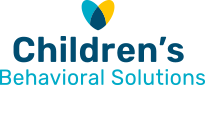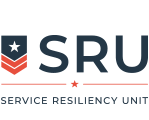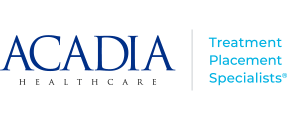With so many unknowns surrounding the coronavirus, the mental and emotional toll that our society is facing is extraordinary. At Acadia Healthcare, we want you to know that you are not alone and that we are here to provide ongoing support and resources. We have compiled a list of frequently asked questions in an effort to offer information that we hope will be of benefit to you.
Should I still seek treatment during the pandemic?
Yes. If you are struggling mentally or emotionally, it is imperative that you seek and receive treatment. Especially during these unprecedented times, the risk of anxiety and depression is extremely high. Individuals who have never struggled with these disorders before may find themselves beginning to experience symptoms, and those who have a history of mental health concerns may find that their symptoms are exacerbated. Thinking that you have nowhere to turn when you feel symptoms escalating is only going to make them worse, and you will likely find yourself feeling increasingly isolated.
It is important to know that treatment is still available. There are many options for care that will not put you at risk. Many of our facilities are offering telehealth services where you can receive treatment via phone or virtual communication platforms. This allows you to receive the care you need without leaving the safety and comfort of your home.
If you need a higher level of care, such as inpatient or residential treatment, all of our facilities have strict protocols in place to keep patients and staff members safe.
Will I be safe if I enter treatment?
Yes. If you enter treatment at any facility within the Acadia network, your safety is our highest priority. We have implemented a number of protocols and procedures that are in adherence to the guidelines provided by the CDC and World Health Organization. To learn more details about these protocols, click here.
What can I do to preserve my own mental well-being during this time?
There are a number of things that you can do to preserve your mental well-being. We have included some suggestions below.
- Do not spend a significant amount of time watching the news. Unless you are in a profession that requires you to have the most up-to-date information on statistics and scientific reports, there is no need for you to know the increasing amount of COVID-19 cases identified or the newly reported number of deaths that have resulted from the virus. By focusing on this information, you are likely going to exacerbate any symptoms of anxiety that you may be struggling with.
- Be mindful of the information you are digesting and the sources through which you are receiving that information. Many people use social media platforms as their news source. It is important to remember that social media is based on perception and opinion and should not be relied on as an accurate resource. Doing so can cause anxiety from the bandwagon effect of sharing and believing fake news.
- Take advantage of technology. While it is not a replacement for physically being with your family and friends, the video calling platforms we have available to us can help eliminate feelings of isolation.
- Speak openly with your loved ones. If you are struggling emotionally, tell them. Don’t be afraid to ask for support.
- Go outside. While social distancing remains necessary, you can still spend time outdoors, which has proven to have a positive impact on mental health. Going for walks, riding bikes, or even just eating a meal outside can help elicit a small sense of freedom.
- Take care of yourself physically. Follow the hygienic procedures recommended by the CDC and you will not have to be in constant fear of spreading or contracting the virus. This in and of itself can help alleviate feelings of anxiety because you are in control.
What should I do if my loved one is struggling?
If your loved one is struggling, give them your time. Check in on them. Listen to them. And, most importantly, encourage them to seek professional help. You can share resources with them and offer support as they begin looking into various treatment options.
Is there someone I can contact if I need immediate help?
Acadia has created a behavioral healthcare crisis line that is free of charge and offers support 24 hours a day, seven days a week. By calling this number, you will be connected with a trained advisor who can provide you with appropriate resources and treatment recommendations according to your needs, or connect you with first responders in emergency situations. This crisis line can be reached by calling 1-833-TREATBH (873-2824).
The Substance Abuse and Mental Health Services Administration operates a disaster distress helpline that is available 24 hours a day, seven days a week. This helpline offers crisis counseling and support and can be reached by calling 1-800-985-5990.
If you or a loved one is experiencing thoughts of suicide, please immediately call 911 or contact the National Suicide Prevention Lifeline at 1-800-273-8255.






